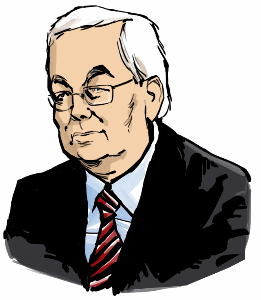© Gunnar Tómasson
4 July 2016
Pythagoras: ALL is NUMBER
http://www.carnaval.com/pythagoras/
Pythagoras and his students believed that everything was related to mathematics, and felt that everything could be predicted and measured in rhythmic cycles. The combination of mathematics and theology began with Pythagoras.
According to Bertrand Russell Pythagoreanism characterized the religious philosophy in Greece, in the Middle ages, and down through Kant. In Plato, Aquinas, Descartes, Spinoza and Kant there is a blending of religion and reason, of moral aspiration with logical admiration of what is timeless. Mathematics, so honored, became the model for other sciences. Thought became superior to the senses; intuition became superior to observation. Platonism was essentially Pythagoreanism. The whole concept of an eternal world revealed to intellect but not to the senses can be attributed from the teachings of Pythagoras.
***
I. Brennu-Njálssaga
(Möðruvallabók)
43746
Alpha
6257 = Mörðr hét maðr. – A Man was named Mörðr.
Alpha
Section on Christianity
12685 = Höfðingjaskipti varð í Nóregi. – There was a change of Chieftains in Norway.
Omega
Section on Christianity
11274 = Fara menn við þat heim af þingi. – At that men went home from Althing.
Omega
13530 = Ok lýk ek þar Brennu-Njálssögu. – And there I conclude Saga of Burnt Njáll.
43746
II. The Sacred Triangle of Pagan Iceland
(Einar Pálsson – Gunnar Tómasson)
345 = Soul’s Foundation
666 = Man-Beast
The Sacred Triangle
A Pagan’s Course Through Life
7196 = Bergþórshváll
6067 = Miðeyjarhólmr
3027 = Helgafell
Time
Equinoctial Points Circle the Zodiac
25920 = Platonic Great Year
216 = Soul’s Resurrection
4000 = Flaming Sword
-4123 = Osiris “risen/dead” – Union with Isis
432 = Right Measure of Man
43746
III. “Murder” of Invincible Truth/Snorri Sturluson
(Gunnar Tómasson)
43746
4315 = Veritas
2307 = 23 September (7th month old-style)
1241 = 1241 A.D. – Date of Snorri’s “murder”
Dialogue at Snorri’s “Murder”
6033 = “Eigi skal höggva.“ – Thou shalt not strike.
3558 = “Högg þú.“ – Thou shalt strike.
6033 = “Eigi skal höggva.“ – Thou shalt not strike.
Truth In the Fulness of Time
13159 = Ártíð Snorra fólgsnarjarls – Anniversary of Snorri’s “murder”
7000 = Microcosmos – Creation/Man in God’s Image
100 = The End
43746
IV. Quest of the Holy Grail and Kabbalah
(Gunnar Tómasson)
43746
1796 = Graal
-1000 = Darkness
35850 = Kabbalah – God’s Manifestation at Level of Man¹
7000 = Microcosmos – Creation/Man in God’s Image
100 = The End
43746
V. Snorri Sturluson’s Advice to Young Poets²
(Skáldskaparmál, Ch. 8)
197920
16349 = En þetta er nú at segja ungum skáldum,
15868 = þeim er girnast at nema mál skáldskapar
16723 = ok heyja sér orðfjölða með fornum heitum
15251 = eða girnast þeir at kunna skilja þat,
8474 = er hulit er kveðit,
22969 = þá skili hann þessa bók til fróðleiks ok skemmtunar.
19899 = En ekki er at gleyma eða ósanna svá þessar frásagnir
17985 = at taka ór skáldskapinum fornar kenningar,
14787 = þær er höfuðskáld hafa sér líka látit.
19481 = En eigi skulu kristnir menn trúa á heiðin goð
17358 = ok eigi á sannyndi þessa sagna annan veg en svá
12776 = sem hér finnst í upphafi bókar.
197920
VI. Snorri Sturluson: All Is One
(Gunnar Tómasson)
197920
Poet Teacher and Student
11359 = Snorri Sturluson
9814 = Sturla Þórðarson
The beginning of this Book.
Sacrificial “Death” of Truth
1 = Monad
3558 = “Högg þú.“ – Thou shalt strike.
At the End
Quest Concluded
-1796 = Graal
Truth
All Is One
174984 = I – IV = 4 x 43746 = 174984
197920
***
Calculator for converting letters to cipher values is at:
http://www.light-of-truth.com/ciphersaga.htm
Footnotes
¹Ten Sefiroth of Kabbalah
(History of God)
2638 = En Sof – Without End/Guð í alheims geimi
3025 = Kether – Crown/Höfuð
2852 = Hokhmah – Wisdom/Vizka
1559 = Binah – Intelligence/Greind
1953 = Hesed – Love or Mercy/Ást eða Miskunn
1219 = Din – Power/Máttur
4209 = Tifereth – Beauty/Dýrð
3301 = (a.k.a. – einnig): Rakhamim –Compassion/Samkennd
3514 = Netsakh – Lasting Endurance/Varanlegt þolgæði
1261 = Hod – Majesty/Virðing
2434 = Yesod – Foundation/Undirstaða
3816 = Malkuth – Kingdom/Ríki
3392 = (a.k.a. – einnig): Shekinah – Guð í sjálfum þér
677 = EK – 13th Icelandic for EGO/Ég
35850
Background on Kabbalah
The most influential Kabbalistic text was The Zohar, which was probably written in about 1275 by the Spanish mystic Moses of Leon [who] believed that God gives each mystic a unique and personal revelation, so there is no limit to the way the Torah can be interpreted: as the Kabbalist progresses, layer upon layer of significance is revealed. The Zohar shows the mysterious emanation of the ten sefiroth as a process whereby the impersonal En Sof becomes a personality. In the three highest sefiroth – Kether, Hokhmah and Binah – when, as it were, En Sof has only just „decided“ to express himself, the divine reality is called „he.“ As „he“ descends through the middle sefiroth – Hesed, Din, Tifereth, Netsakh, Hod and Yesod – „he“ becomes „you.“ Finally, when God becomes present in the world in the Shekinah, „he“ calls himself „I.“ It is at this point, where God has, as it were, become an individual and his self-expression is complete, that man can begin his mystical journey. Once the mystic has acquired an understanding of his own deepest self, he becomes aware of the Presence of God within him and can then ascend to the more impersonal higher spheres, transcending the limits of personality and egotism. It is a return to the unimaginable Source of our being and the hidden world of sense impression is simply the last and outer-most shell of the divine reality. (Karen Armstrong, A History of God, Ballantine Books, New York, 1993, p. 247)“
² This is the entire text of Ch. 8.
In it Snorri Sturluson offers advice to ‘young poets’ who desire to understand the language of poetry, build up a vocabulary of ancient names which might enablethem to understand that which is cast in terms of hidden poetry.
First they need to UNDERSTAND Edda and not shy away from using ancient terminology which major poets have been content to use.
But Christians shall not believe in heathen gods and not in the truthfulness of these stories otherwise than can be found at the beginning of this book.

 Gunnar Tómasson
Gunnar Tómasson